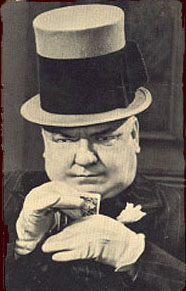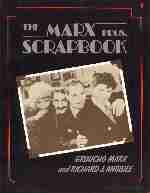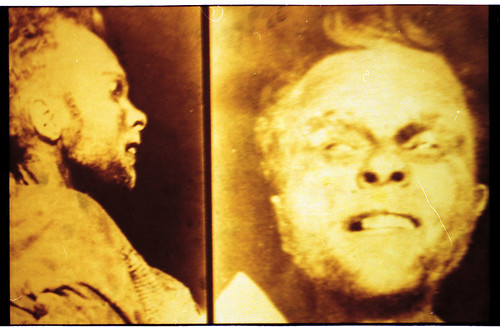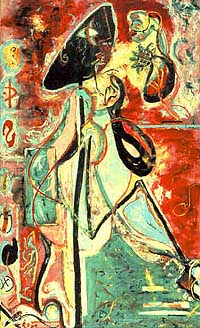
Let Old Dead Beat sing you a tune (See Dead Beat Forms A Nation).
NO IRISH NEED APPLY.
Written by JOHN F. POOLE, and sung in the good old days, with immense success, by the great Comic-Vocalist of the age, TONY PASTOR.
Dead Beat doesn't quite have his timing, but he has his flair.
I'm a dacint boy, just landed from the town of Ballyfad;
I want a situation: yis, I want it mighty bad.
I saw a place advartised. It's the thing for me, says I;
But the dirty spalpeen ended with: No Irish need apply.
Whoo! says I; but that's an insult—though to get the place I'll try.
So, I wint to see the blaggar with: No Irish need apply.
I started off to find the house, I got it mighty soon;
There I found the ould chap saited: he was reading the TRIBUNE.
I tould him what I came for, whin he in a rage did fly:
No! says he, you are a Paddy, and no Irish need apply!
Thin I felt my dandher rising, and I'd like to black his eye—
To tell an Irish Gintleman: No Irish need apply!
I couldn't stand it longer: so, a hoult of him I took,
And I gave him such a welting as he'd get at Donnybrook.
He hollered: Millia murther! and to get away did try,
And swore he'd never write again: No Irish need apply.
He made a big apology; I bid him thin good-bye,
Saying: Whin next you want a bating, add: No Irish need apply!
Sure, I've heard that in America it always is the plan
That an Irishman is just as good as any other man;
A home and hospitality they never will deny
The stranger here, or ever say: No Irish need apply.
But some black sheep are in the flock: a dirty lot, say I;
A dacint man will never write: No Irish need apply!
Sure, Paddy's heart is in his hand, as all the world does know,
His praties and his whiskey he will share with friend or foe;
His door is always open to the stranger passing by;
He never thinks of saying: None but Irish may apply.
And, in Columbia's history, his name is ranking high;
Thin, the Divil take the knaves that write: No Irish need apply!
Ould Ireland on the battle-field a lasting fame has made;
We all have heard of Meagher's men, and Corcoran's brigade.
Though fools may flout and bigots rave, and fanatics may cry,
Yet when they want good fighting-men, the Irish may apply,
And when for freedom and the right they raise the battle-cry,
Then the Rebel ranks begin to think: No Irish need apply
Hup ye boys!



























































